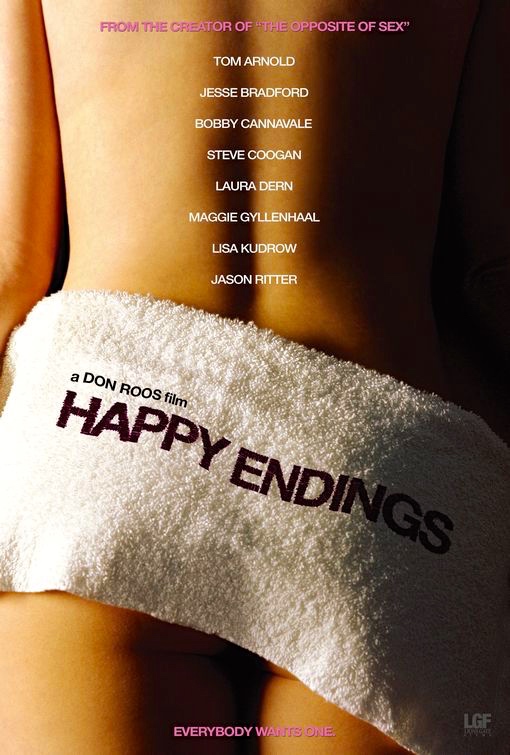(On the language of sex — but with a fair amount of sex, so this posting might not be to everyone’s taste.)
“Happy Ending” was the header on this e-mail from the Daily Jocks people yesterday, announcing the last hours of their big sale; the caption below is mine.
He got him off, then he
Kissed him off.
From Wikipedia on massage parlors:
A massage parlor (American English) or massage parlour (British English) is the term commonly used as a euphemism for a brothel, an establishment that is actually a front for prostitution.
… the massages at certain massage parlors may have a “happy ending”, meaning that the massage ends with the client receiving a sexual release [usually by a handjob, sometimes by a blowjob]. In addition to a “happy ending” service, given the restrictions imposed upon most striptease venues, some erotic massage venues now also offer a service where the client can masturbate him or herself while watching an artist perform a striptease.
This sexual (but semi-euphemistic) and very context-specific sense of happy ending (referring to the ending of a massage session that provides happiness by giving the customer sexual release) competes with a more literal (and more general) sense of the expression (referring to the ending of an event or a story that is fortunate, usually by providing happiness to the participants — they lived happily ever after, as the saying goes); even this sense is not fully literal, however, since literal happy is predicated of people, but is here transferred to an event in which people become happy.
The two senses can sit poorly together, as here:
(Another Friendly’s sign offers a free Happy Ending “with any chicken choices”. Cue the gay slang detector: one boy to go, with a handjob.)
From an Adweek piece of 7/12/05 by Tim Nudd, “Is Friendly’s being overly friendly?”:
The phrase “happy ending” has been gaining currency for some time as a way to refer to a massage that offers, shall we say, an extra component of release. There’s even a new movie called Happy Endings, which is being advertised with a shot of what looks like a woman’s bare back and a towel covering her butt. (A man’s butt would make more sense, probably, but a woman’s may be better for ticket sales.)
So it’s somewhat curious that Friendly’s is still touting its “Happy Ending” sundae, a product that is prompting the expected insinuations about the family restaurant chain’s commitment to customer service… To get their side of the story, we called Friendly’s. They told us they weren’t aware of the connotation and had no plans to change the name.
Apparently, Friendly’s (a restaurant chain in the eastern U.S. specializing in ice cream) has used the registered name “Happy Ending” for a number of sundaes on its menu, the idea being that a sundae provides a happy ending to a meal.
The 2005 movie Happy Endings advertised itself (as in #3) in a clearly sexual fashion, and indeed the three stories it weaves together all have prominent lesbian or gay themes. But the 2011-13 tv series with that name seems to have been just about relationships, as were the 2014 romantic comedy film Happy Ending and the 1969 film The Happy Ending.


